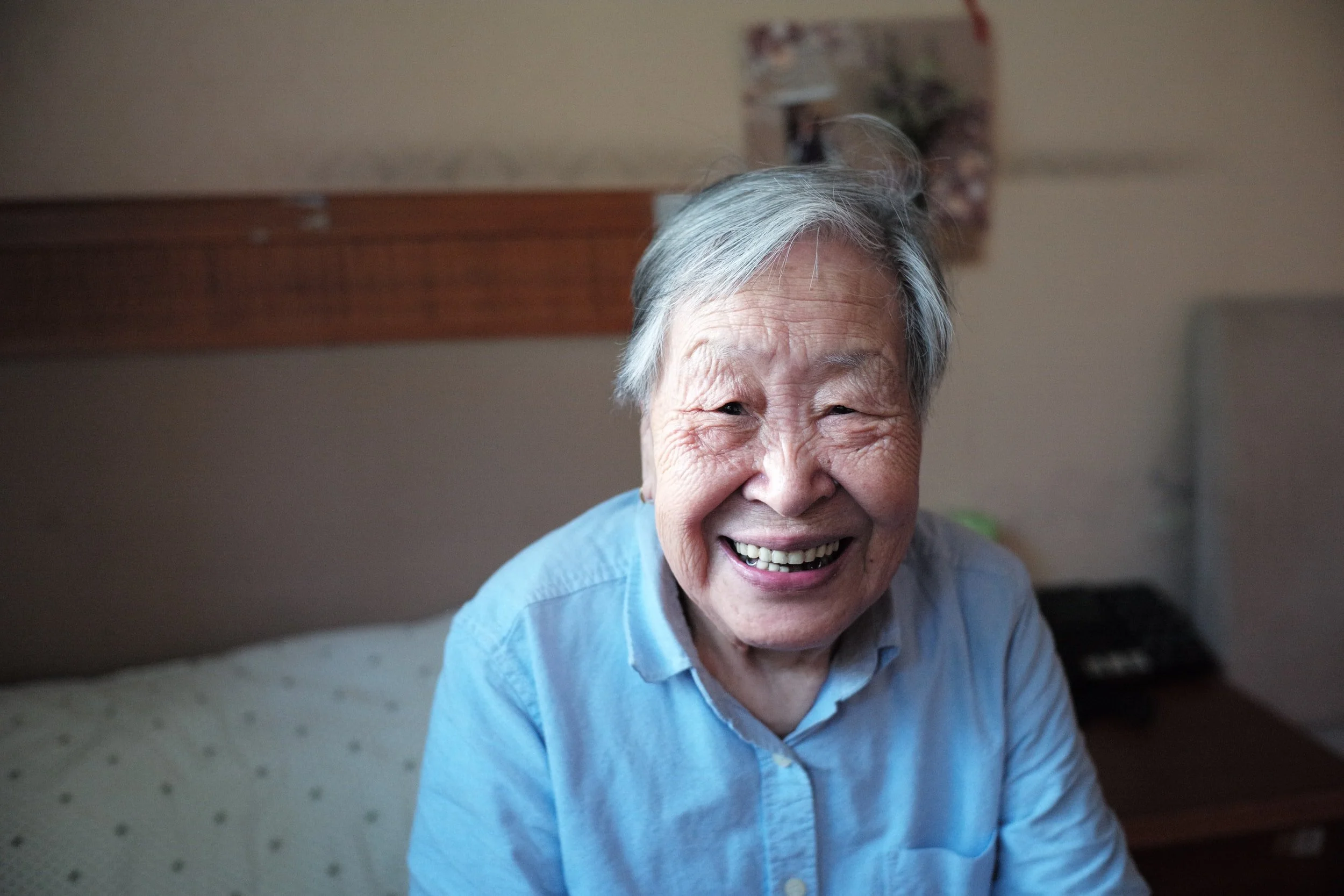
Field notes
Conversations with gender lens investing practitioners about their investment journeys, challenges, and reflections.
Embracing feminine models of leadership: An interview with Halla Tómasdóttir
Halla Tómasdóttir is CEO and Chief Change Catalyst for The B Team, a group of global business and civil society leaders driving a better way of doing business for the well-being of people and the planet. As well as having leadership roles in Corporate America with M&M and Pepsi Cola, Halla was the first female CEO of the Iceland Chamber of Commerce and later went on to co-found Auður Capital, an investment firm with the vision of incorporating feminine values into finance. In 2016, Tómasdóttir was an independent candidate for President of Iceland, earning nearly 30% of the vote.
Halla joined GenderSmart to share her thoughts on the changes (or lack thereof) she has seen within the gender lens investing world over the past fifteen years, why we need to embrace feminine models of leadership and why she believes that quotas can benefit everyone.
Investing with an LGBTQIA lens: An interview with Ise Bosch and Stefan Bollier
Dreilinden is a German-based nonprofit organisation dedicated to advancing social acceptance of gender and sexual diversity, via grants, social investments and networking. Dreilinden’s founder and CEO, Ise Bosch, has 25 years of funding experience in human rights, women and sexual minorities, and is co-author of Giving with Trust, a book about turning the power of money into power for the many.
GenderSmart spoke to Ise, along with Investment Committee member and founder of Impact Advisors LLC, Stefan Bollier, about their work enabling intersectional LGBTQIA communities across the Global South and Global East to access mainstream finance.
From Traction to Transformation: Reflections on the 2022 Summit
Meg Massey reflects on the key themes of the 2022 GenderSmart Investing Summit, and what it might truly take to transform systems of finance.
Where the work lies now: a to-do list for gender-smart investors
As we open the GenderSmart Investing Summit 2022 today, Suzanne Biegel reflects on the key actions needed to move the field forward and shift the needle in both numbers and impact. What do we most need to do to move more capital with more velocity and to greater effect?
Action and Accountability: An Interview with Robyn Oates, UN Women
Robyn Oates is a Sustainable Finance Specialist at UN Women. She is passionate about developing impact-centric standards, products and partnerships to support the sustainable financing ecosystem, including gender lens investing. She shares how UN Women is working with capital market actors to strengthen the credibility of gender lens investing, as well as her thoughts on how we can encourage different players in the space to work more effectively together.
Building Country-Wide and Context-Specific GLI Models: An Interview with Tim Radjy
Tim Radjy is Founder and Managing Partner of the AlphaMundi Group and Chair of the Gender Lens Initiative for Switzerland (GLIS), an initiative housed by the non-profit association Sustainable Finance Geneva (SFG). Tim shares his insights into scaling gender lens investing (GLI) in emerging markets, following his session at the 2022 Virtual Programme.
Data, demand, and engagement: An interview with Pathstone’s Katherine Pease
Katherine Pease is Managing Director at Pathstone, an investment advisory firm working with family offices and institutions across the US. We spoke to her about the challenges in unlocking larger pools of gender-smart capital, what clients are paying attention to, and why it’s critical to get better at communicating gender’s relevance across investment portfolios and thematics.
Shifting power through a participatory approach: An interview with Equality Fund’s Adaora Ogbue
Equality Fund launched in 2019, with a $300M anchor from Global Affairs Canada. They recently launched their investment theory of change, which centres historically excluded grassroots feminist movements. We spoke to Director, Investment Strategy Adaora Ogbue about how their model seeks to disrupt systems of finance, and why it’s critical to align their investments - not just grantmaking - with deep gender impact.
Trust and Transformation: Emma Wheeler on Women's Wealth
Emma Wheeler, Head of Women’s Wealth at UBS Global Wealth Management, on the increasing importance of gender-smart investing solutions for advisors and how the financial services industry is unlocking women’s wealth.
Deeper Impact by Design: an Interview with Lilian Mramba, Grassroots Business Fund
Lilian Mramba is Regional Director, Africa at Grassroots Business Fund, where she manages the investment portfolio, business advisory, and impact measurement activities. She spoke to us about the gender finance challenges and opportunities on the continent in the wake of COVID, and the need for more rigorous analysis to prevent ‘genderwashing’.
Going beyond Governance: An interview with Pooja Eppanapally
Women of the World Endowment (WoWE) was created with a bold vision—build a $5B endowment, over the next 10 years, to centralise the role of women as economic, environmental, and social changemakers who are creating a high growth future. Investment Manager Pooja Eppanapally spoke to us about mainstreaming gender finance, evolving definitions, and their approach to impact and measurement.
Integrating Gender into Infrastructure Investments: An Interview with Marco Serena, PIDG
Marco Serena is the Group Head of Sustainable Development at the Private Infrastructure Development Group (PIDG), which designs and invests in infrastructure projects across emerging markets. Marco’s remit is to oversee the early stage impact assessment of all PIDG investments, and to deepen sustainable impact including on gender and climate. He spoke to us about the challenges and learnings from PIDG’s work to date, and what’s on the horizon for gender-smart infrastructure investments.
Unlocking Gender Equity Through Alternative Fund Structures: An Interview with Aunnie Patton Power
Aunnie Patton Power is the founder of Intelligent Impact, an innovative finance advisory firm and a university lecturer on Innovative Finance, Impact Investing and Technology for Impact. She is also the author of Adventure Finance: How to Create a Funding Journey that Blends Profit and Purpose, and is starting a new book about alternative funding structures. We spoke to her about the most impactful lever and strategies for getting more capital flowing to women (and especially women of colour) - and how traditional structures can fall short.
Recognise, Reduce, Reward, Redistribute: Mapping Care Economy Opportunities Through the 4Rs Framework
Paid and unpaid care and domestic work are vital to both the economy and society; yet they remain invisible, undervalued and under-rewarded, and unevenly distributed. In the first of a series of blogs, Rebecca Calder, Emily Boost and Aurelie Faugier at Kore Global present a framework to help define investable care economy opportunities as part of their ecosystem mapping work.
Shinsei Bank Group’s Chunmei Huang and Sayaka Takatsuka on why investing in care is key to a healthy Japanese workforce
Shinsei Bank was the first Japanese Banking Group to launch an impact investing fund, and now has two funds focused on investments into businesses tackling the life challenges that are faced by the working population, including childcare, elder care, healthcare, work-life balance and work-style innovations. We spoke to Chunmei Huang and Sayaka Takatsuka, Managing Director and Senior Director on the Impact Investment Team of Shinsei Corporate Investment Limited in the Shinsei Bank Group, about their approach and growing the Japanese impact investing ecosystem.
The XX Edge: An interview with Ruth Shaber
Ruth Shaber is the Founder and President of Tara Health Foundation, a co-founder of Rhia Ventures, and an active gender focused investor in her personal portfolio. She is also co-author of a new book which makes a persuasive data-led financial case for investing with a gender and broader diversity lens for as-yet-unconverted mainstream allocators. We discuss the risks of not paying attention, and what it will really take to shift the status quo.
Data and Disclosure: An interview with Diana van Maasdijk
Diana van Maasdijk is the CEO of Equileap, a data provider that assesses 4,000 companies globally on 19 criteria including gender balance, the gender pay gap, paid parental leave and anti-sexual harassment policies. We speak with her about the findings of the just-published 2022 Gender Equality Global Report and Ranking, what’s improved and what still needs to happen to push companies and investors further towards gender parity.
From Silos to Systems: An interview with Jenn Pryce
Calvert Impact Capital has taken a holistic approach to gender since they began investing debt capital 25 years ago. They’re currently influencing over a billion dollars, and invest in intermediaries, institutions, and impact funds in the United States and more than 100 countries around the globe. We spoke to CEO Jennifer Pryce about the shifts she’s seen in the field, and what she believes gender finance needs to become the new normal.
Why gender lens investing in Africa needs a localised, participatory approach: an interview with Andia Chakava
Andia Chakava is the Investment Director at the Graca Machel Trust, a Pan African organisation that deals with women's and children's rights through a gender lens investment vehicle and other programmes. We spoke to her about regional gender and JEDI nuances on the continent, the importance of working with local women’s networks, and the Trust’s participatory investment processes.
Diversity Beyond Gender: An interview with Patricia Hamzahee
Patricia Hamzahee is an investor and co-founder of UK-based Extend Ventures. Her team’s November 2020 research, Diversity Beyond Gender, into access to funding for diverse founders in the UK was the first of its kind, and they have recently been commissioned for similar research in the European context. Patricia speaks to us about the particular challenges facing UK investors when it comes to investing with an equity lens, and what they’re doing to build a better evidence base.




















